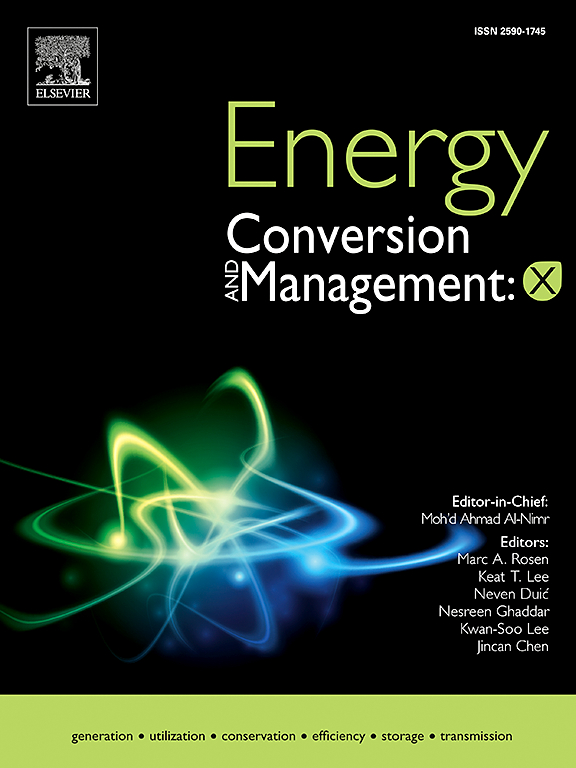Artificial intelligence and machine learning for smart grids: from foundational paradigms to emerging technologies with digital twin and large language model-driven intelligence
IF 7.6
Q1 ENERGY & FUELS
引用次数: 0
Abstract
The evolution of modern power systems into smart grids is increasingly powered by Artificial Intelligence (AI) and Machine Learning (ML), which provide effective solutions for managing renewable intermittency, dynamic demand, and cybersecurity challenges. This paper presents a comprehensive review of AI/ML applications in smart grids, tracing their development from foundational paradigms to cutting-edge technologies such as Federated Learning (FL), Generative AI (GenAI), Large Language Models (LLMs), the Artificial Intelligence of Things (AIoT), and Digital Twin (DT)-driven intelligence. Enabling infrastructures, including IoT, 5G, edge–cloud ecosystems, and ML-based smart sensors, are discussed alongside advanced approaches such as multi-agent systems. Key applications explored include load forecasting, predictive maintenance, anomaly and cyber-attack detection, demand-side management, and electric vehicle integration. Special emphasis is placed on Digital Twin and LLM architectures, which enable real-time cyber-physical replicas and context-aware reasoning, thus improving predictive analytics, resilience, and autonomous decision-making. Despite notable advancements, challenges remain in interoperability, data privacy, computational scalability, adversarial robustness, and ethical constraints. By synthesizing these insights, the study highlights the transformative role of AI in creating resilient, sustainable, and intelligent energy systems, and outlines future research trajectories toward standardized DT frameworks, active learning paradigms, and LLM-driven energy intelligence.
智能电网的人工智能和机器学习:从基础范式到数字孪生和大型语言模型驱动智能的新兴技术
现代电力系统向智能电网的演变越来越多地受到人工智能(AI)和机器学习(ML)的推动,它们为管理可再生能源间歇性、动态需求和网络安全挑战提供了有效的解决方案。本文全面回顾了人工智能/机器学习在智能电网中的应用,从基础范式到前沿技术的发展,如联邦学习(FL)、生成式人工智能(GenAI)、大型语言模型(LLMs)、物联网人工智能(AIoT)和数字孪生(DT)驱动的智能。支持基础设施,包括物联网,5G,边缘云生态系统和基于ml的智能传感器,以及多代理系统等先进方法进行了讨论。探索的主要应用包括负荷预测、预测性维护、异常和网络攻击检测、需求侧管理和电动汽车集成。特别强调的是数字孪生和LLM架构,它们可以实现实时网络物理副本和上下文感知推理,从而提高预测分析、弹性和自主决策。尽管取得了显著的进步,但在互操作性、数据隐私、计算可扩展性、对抗性鲁棒性和道德约束方面仍然存在挑战。通过综合这些见解,该研究强调了人工智能在创建弹性、可持续和智能能源系统方面的变革性作用,并概述了标准化DT框架、主动学习范式和法学硕士驱动的能源智能的未来研究轨迹。
本文章由计算机程序翻译,如有差异,请以英文原文为准。
求助全文
约1分钟内获得全文
求助全文
来源期刊

Energy Conversion and Management-X
Multiple-
CiteScore
8.80
自引率
3.20%
发文量
180
审稿时长
58 days
期刊介绍:
Energy Conversion and Management: X is the open access extension of the reputable journal Energy Conversion and Management, serving as a platform for interdisciplinary research on a wide array of critical energy subjects. The journal is dedicated to publishing original contributions and in-depth technical review articles that present groundbreaking research on topics spanning energy generation, utilization, conversion, storage, transmission, conservation, management, and sustainability.
The scope of Energy Conversion and Management: X encompasses various forms of energy, including mechanical, thermal, nuclear, chemical, electromagnetic, magnetic, and electric energy. It addresses all known energy resources, highlighting both conventional sources like fossil fuels and nuclear power, as well as renewable resources such as solar, biomass, hydro, wind, geothermal, and ocean energy.
 求助内容:
求助内容: 应助结果提醒方式:
应助结果提醒方式:


